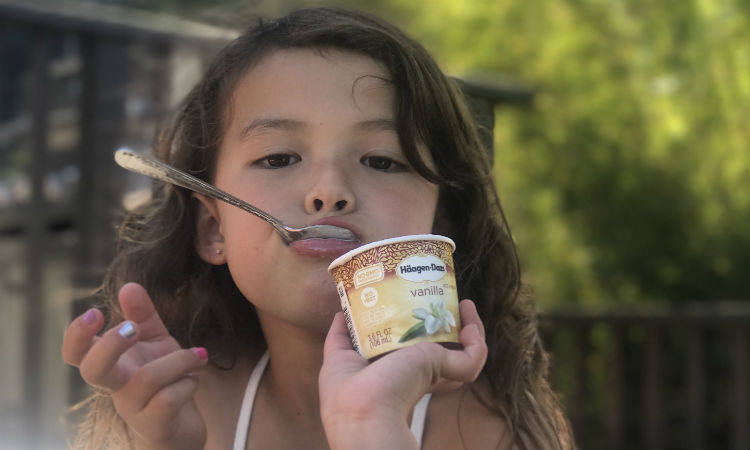
No gluten. No dairy. At least 25 grams of gluten-free fiber a day. Nothing processed. No trans fats. No nightshades. At least nine servings of fruits and vegetables. Every. Single. Day. This is the diet I’ve been told by countless people to put my 4-year-old child on.
No, she’s not overweight, though her perfectly squeezable cheeks might convince you otherwise. She’s in the 85th percentile for weight for her age, but she’s also in the 90th percentile for height. So, according to her pediatrician, it all balances out.
The diet has nothing to do with her weight. In fact, she eats pretty healthy as it is and we’re outside moving every single day—even in the middle of winter in Alaska. This kid is active and a good eater, who I never have to fight with to finish her vegetables.
But she’s also a kid who was recently diagnosed with juvenile idiopathic arthritis (JIA).
Luckily, there are treatments available, but they aren't easy. The medication she has to take to get her immune system to stop attacking her body is a chemotherapy drug and I have to give it to her as a shot once a week. The whole goal is to weaken her immune system, which means my kiddo is now one of those immunocompromised kids who are more susceptible to the diseases everyone else brushes off as no big deal. As a mother, that’s terrifying.
So, of course, I’ve researched in great detail the potential for more natural treatments. Again and again, I’ve come across stories of families who have found success with super restrictive anti-inflammatory diets. I’m actually not a stranger to these diets. I have endometriosis and have long known that I do best when I cut certain foods out of my diet. But I also know it is an extremely difficult thing to keep up in the real world.
Maybe it’s extra hard for me, because I come from a background of battling an eating disorder for over a decade. I’m healthy these days, but restrictive diets feel like a slippery slope to me. I tend to be very "all or nothing," so when I start labeling certain foods as good and bad, old demons come to the surface for me.
It’s a constant battle, weighing my physical health against my mental health. And it’s not a battle I ever wanted my daughter to fight.
I don’t want to put any of this on my little girl.
One of the things I promised myself when I became “Mommy” to a little girl was that I would never, ever pass my food issues onto her. I would teach her moderation, how to love both salads and cupcakes. I would teach her to savor her food, without worrying about calorie counts or numbers on a scale. And I would never let any category of food be demonized. Because food is just food, and we’re allowed to enjoy it all.
Basically, I would teach her to listen to and honor her body—rather than constantly punishing her body the way I always did my own.
I’ve spent a fair amount of time in therapy coming up with these goals, and I was doing a great job accomplishing them. Our home is filled mostly with the “good” stuff but we eat out regularly enough and spend time eating with friends, as well. We go to birthday parties and celebrate the holidays without restriction. We eat when we’re hungry and sometimes we have ice cream before dinner. Life is too short to not surprise your kid with ice cream after school every once in a while.
So, the idea of putting her on one of these diets has my stomach twisted in knots. Every success story I’ve read talks about sticking to the diet completely. It doesn’t work if you allow occasional slip-ups. You have to be 100 percent committed. Even then, it doesn't work for everybody.
At the end of the day, I don’t want to be the mom telling my daughter she can’t have the cupcake at her friend’s birthday party or sending her with separate snacks during school celebrations because she’s not allowed to enjoy what all her friends are eating. I don’t want to put any of this on my little girl.
For now, we rely on the medication to do what medication is supposed to do. We stick to the diet about 65 percent of the time. What I buy and what we keep in our house is mostly in line with what she needs. But I can’t—I won’t—put my daughter on a diet so restrictive that she no longer feels able to enjoy mealtimes.
Maybe that’s my own food issues coming to the surface. Maybe it’s me, wanting to save her from the years I spent obsessing about what I could and couldn’t eat. But at some point, I’ve got to honor what’s best for her mental wellness too—right?
Sometimes, that’s ice cream after school just because.




